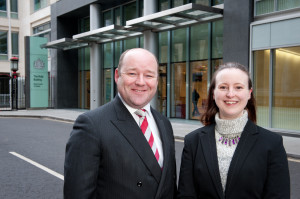Lawyers have added their voice to mounting criticism of UK government plans to limit the right of immigrants to legal aid.
Justice Secretary Chris Grayling recently announced proposals that would prevent immigrants applying for state-funded legal advice or representation during their first year in the country. The plan would effect so-called ‘failed asylum seekers and those accused of overstaying even though there have been several cases where the courts have found in their favour. These verdicts often centre around illegal procedure or a legal technicality that only a lawyer could reasonably be expected to uncover.
Mr Grayling has also announced proposals to remove eligibility for legal aid from most UK citizens and to change the system so that defendants in criminal cases will be provided with a state-appointed solicitor rather than choosing their own representative as they do at present.
The Civil Justice Council has criticised the plans, pointing out that they run counter to “the fundamental principle of equality before the law” and could leave immigrants “unable to bring or defend claims that are crucial to their lives”. The Council goes on to warn that, if the changes are made, this will diminish “the credibility of the UK’s encouragement of the rule of law elsewhere in the world”.
Mr Grayling is on record as saying that he does not want “individuals with little or no connection to this country” to be “able to claim legal aid to bring civil actions at UK taxpayers’ expense”. He says that of 8,734 immigration Judicial Review cases brought in 2011, only 607 got as far as a court hearing and only 31 were successful. He concludes that many of those applications for Judicial Review were, therefore, without merit, arguing that the system is being abused by lawyers who apply for Judicial Review in order to delay the deportation of their clients even when there is no chance that the review will be successful.
But writing in The Guardian, immigration barrister Julian Norman says that just because a case does not result in a successful legal ruling, it does not mean it is without merit. Ms Norman gives the example of a UK Border Agency (UKBA) detainee who was about to be illegally deported while his claim for asylum was being processed. According to Ms Norman: “Telephone calls to UKBA yielded no result, so Judicial Review was the only answer. Immediately the Judicial Review was lodged, he was released with a muttered apology”.
Some weeks later, the UKBA again embarked on the process of deporting the client. Unable to get a response from the Agency, Ms Norman launched another Judicial Review before the UKBA again agreed not to deport him.
“Those cases were technically among those Grayling regards as meritless, because they did not get as far as being granted permission. UKBA could have fought us and we would have won – but isn’t it better that they do concede at the earliest opportunity?” she says, adding: “These are the types of cases which immigration solicitors and barristers deal with on a daily basis. A combination of over-legislation and under-staffing at UKBA [has created] a toxic mix”.










